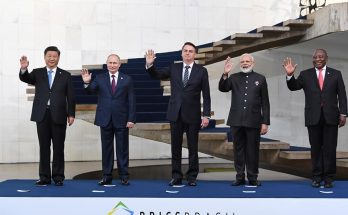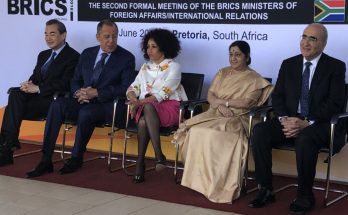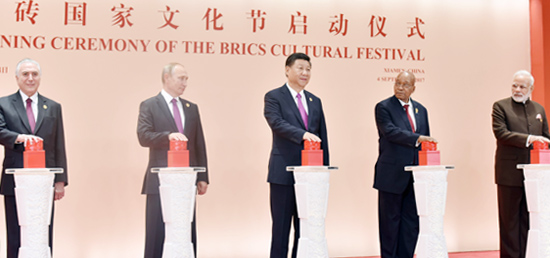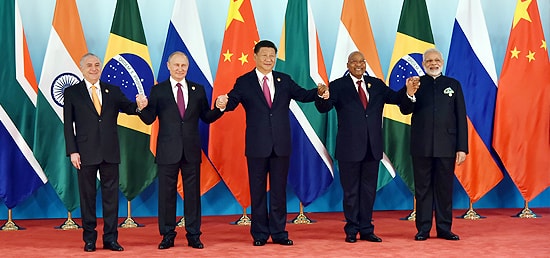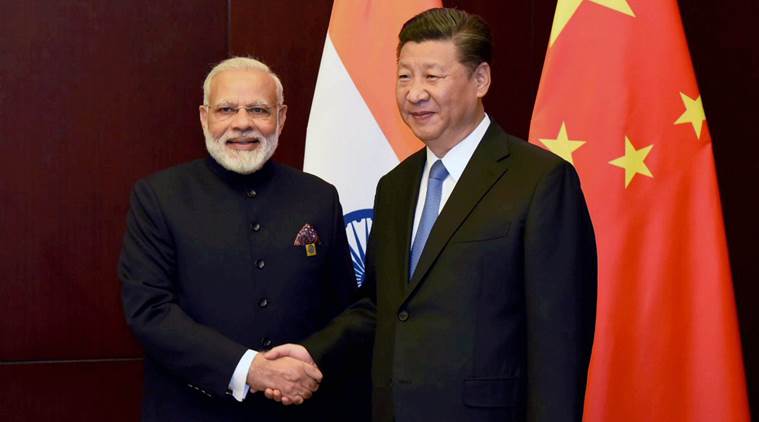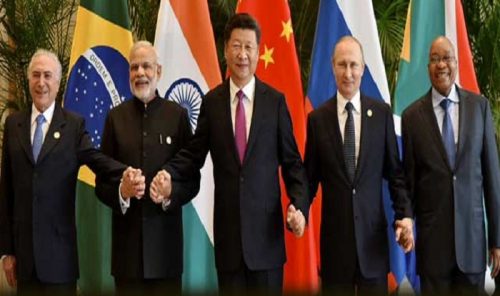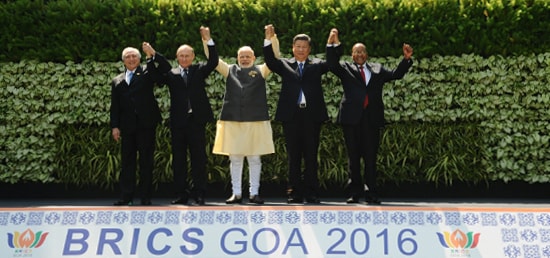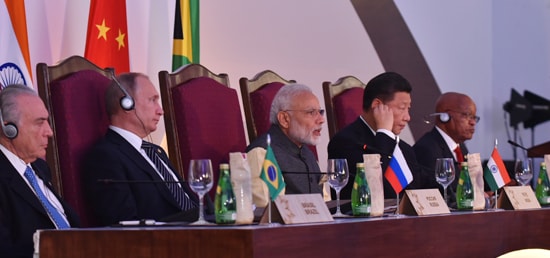In a triumph of Indian diplomacy and a sign of an evolving entente with China, BRICS countries have collectively backed India’s concerns over cross-border terrorism, with a BRICS joint declaration naming for the first time Pakistan-based anti-India terror groups, including LeT, JeM and the Haqqani Network.
The leaders of India, China, Brazil, Russia and South Africa held discussions on a wide array of cross-cutting threats in the coastal city of Xiamen. Jointly combating terror figured prominently in the talks.
At the end of the meeting, the BRICS leaders came out with a joint declaration, which addresses India’s concerns over cross-border terrorism.
“We deplore all terrorist attacks worldwide, including attacks in BRICS countries, and condemn terrorism in all its forms and manifestations wherever committed and by whomsoever and stress that there can be no justification whatsoever for any act of terrorism,” the Xiamen Declaration said.
Alluding to the fragile and deteriorating security situation in Afghanistan, the declaration said: “We, in this regard, express concern on the security situation in the region and violence caused by the Taliban, ISIL/DAISH, Al-Qaida and its affiliates including Eastern Turkistan Islamic Movement, Islamic Movement of Uzbekistan, the Haqqani network, Lashkar-e-Taiba, Jaish-e-Mohammad, TTP and Hizb ut-Tahrir.”
The explicit mention of anti-India terror outfits, supported by Pakistan, in the Xiamen joint declaration is significant as China had opposed the inclusion of these terror organisations in the Goa summit declaration last year.
The inclusion of Pakistan-based terror groups has come as a surprise to analysts and BRICS observers here as Beijing had cautioned that Pakistan’s role in terrorism was not an appropriate subject for the BRICS summit.
Read More
